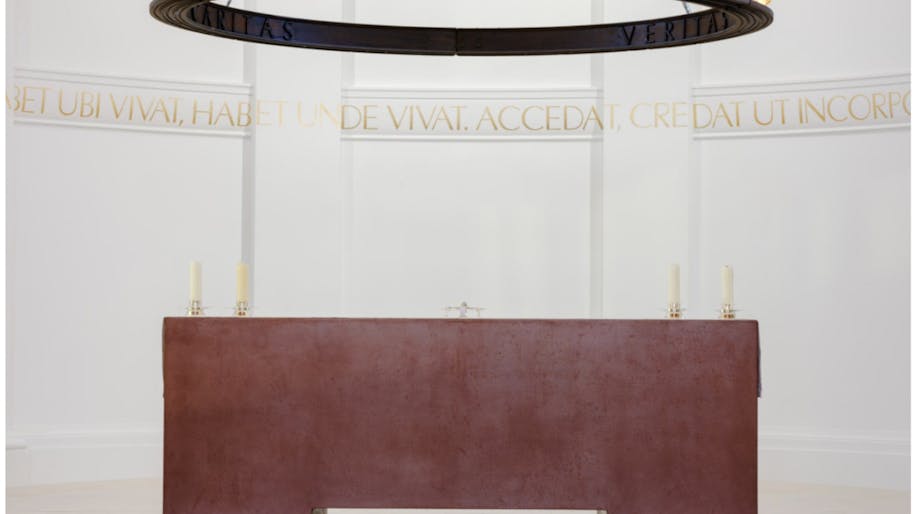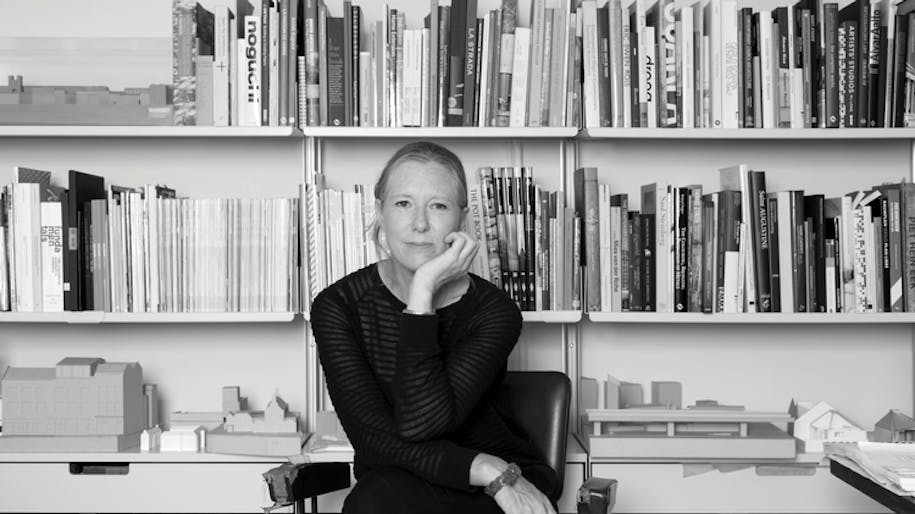
'Bureau is a Place of Optimism'
We talk to Roz Barr on designing the interiors of Bureau - a new members club at the heart of Design District, that prioritises not just space to think and do, but shared knowledge, chance encounters and wellbeing. What is it like to be designing in a pandemic, not for a pandemic?
A graduate of The Bartlett, Roz Barr founded her eponymous practice in London in 2010. She has since undertaken a wide range of projects internationally including a property in rural Spain and a New York studio for Victoria Beckham. Most recently, Roz Barr Architects has addressed the future of work through its designs for workspaces, lounges and bars for Bureau, Design District’s members club for creatives.
To mark International Women’s Day 2021, we spoke with Roz Barr about bringing people together through architecture, the need for more women in construction and how getting a studio dog has been a dream come true.
Design District (DD): Let’s start at the beginning. Please tell us a bit about how your career got going.
Roz Barr (RB): I started out at art school in Glasgow. I was interested in everything: textiles, sculpture, architecture, graphics — it was an immersive experience. I still like problem solving and collaborating with different disciplines, which is definitely something that came from being in an art school. And I continue to think about “context and content” in my work, whatever the scale.
DD: What have been some of your career highlights since establishing Roz Barr Architects?
RB: Massive highlights include our work at St Augustine’s Church — which was a phenomenal experience — and also winning the V&A Fashion Gallery commission. Plus getting a studio dog, which was a dream come true.
DD: Although we talk about a post-pandemic “return to normal,” I think we’re simultaneously alert to the fact that the future is unpredictable. Nonetheless, we continue to plan for it. How has uncertainty informed your design for Bureau? RB: Our client was super clear: we’re designing in a pandemic, but not for a pandemic. We want to build and design for a future that moves beyond this. Yes, we need better acoustics and have a responsibility to the Zoom and Teams generation, but we also want to bring people together. Bureau is a place of optimism.
DD: There’s been a lot of talk about the spatial differences between the workspace we travel to and the space we work in at home. But there are temporal differences too — do you think the distinction between work time and playtime is important? RB: Totally. I was told (and agree) that we have a work and a home personality. When we don't have this transitional time of travelling from one personality to the next, well, it’s very challenging to switch off. As much as time spent at home has been incredibly cathartic for those of us who have been on the treadmill for years, this process of interaction and transition is hugely important.
DD: What do you believe to be the greatest advantage to having access to workspace outside of the home? RB: People, interaction, visual stimulation and a change of air.
DD: Everyone has an idea of the kind of environment they want to work in, as well as different requirements. Have you been able to identify certain commonalities in these wants and needs that you’ve brought to Bureau’s workspaces?
RB: Flexibility, stimulation and excitement. And I think we will all need a bloody good dancefloor after Covid.
DD: Everyone has an idea of the kind of environment they want to work in, as well as different requirements. Have you been able to identify certain commonalities in these wants and needs that you’ve brought to Bureau’s workspaces?
RB: Flexibility, stimulation and excitement. And I think we will all need a bloody good dancefloor after Covid.
DD: One of the interesting things about Bureau is that its spaces are specifically intended to house a community of creatives. While there are many ways of creating community, do you think the design of a space has a role to play?
RB: Totally. Whether it is a church or the public square of a community space, it’s about congregating a collective of like-minded individuals and the way they can balance and enhance their environments.
DD: Design District is organising an event to celebrate IWD 2021 that will see you in conversation with SheSays co-founder, Alessandra Lariu. As two women who have built successful careers and come to be seen as leaders in your fields, many people are going to be keen to learn from your experience. Are you able to offer any specific advice to women starting a career in architecture?
RB: Be true to yourself. Believe in yourself and stick with what you see is right for you and your career. And we all need a sense of humour, right? When Alessandra and I met, we realised we are both looking to the future, not stuck in what could have been. Change needs to happen now and continue to happen. This last year has shown us that we need to adapt and not just stick with the norm.
Join us as we celebrate Women in leadership on Friday, 12 March, when Alessandra Lariu meets architect Roz Barr on Zoom. Get your free ticket to the talk here.

